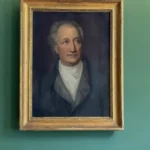About Düsseldorf
Düsseldorf, Germany’s fashion capital and a hub for telecommunications, sits along the banks of the Rhine River. It’s also the birthplace of the renowned 19th-century poet Heinrich Heine and one of the world’s major exhibition cities.
This trip coincides with a busy season of trade fairs in Düsseldorf, the 2024 UEFA European Championship in Germany, and the 2024 Summer Olympics in Paris. As a result, everything travel-related has become more expensive, with affordable accommodations almost impossible to find and hotel prices doubling across the board.
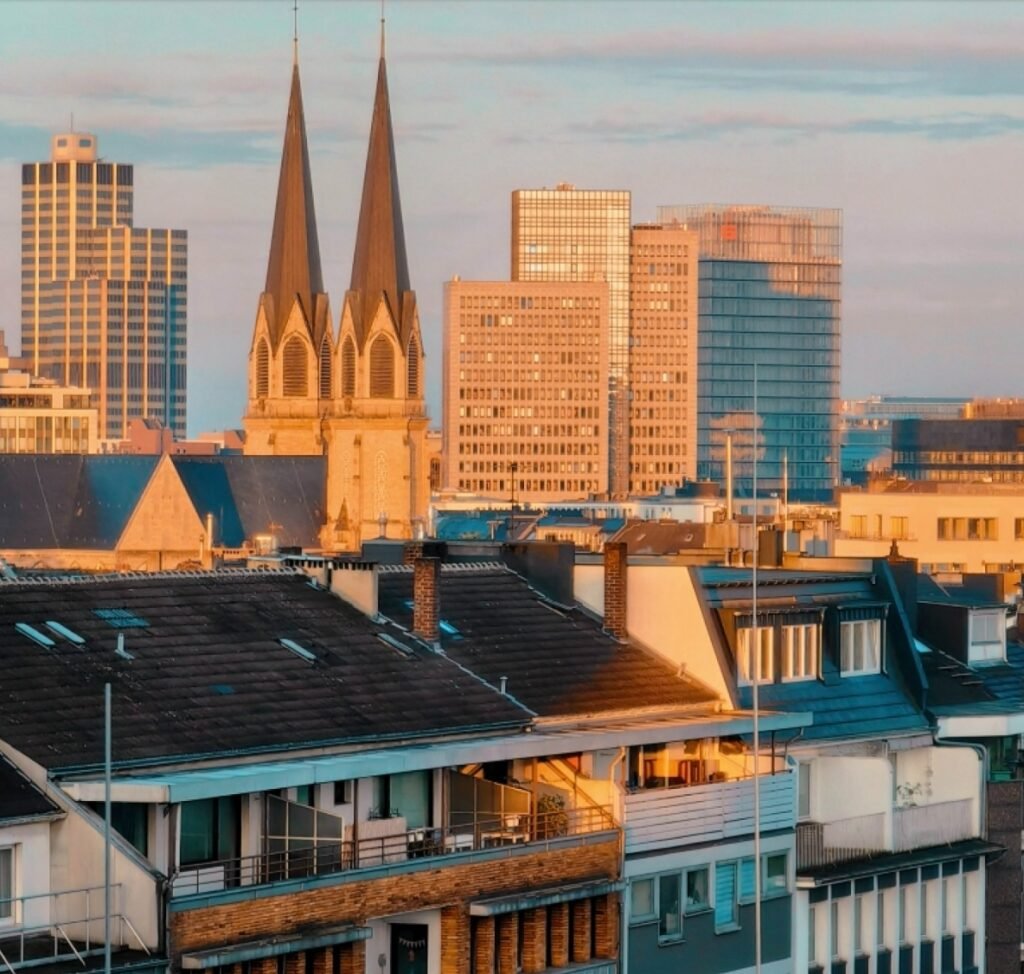
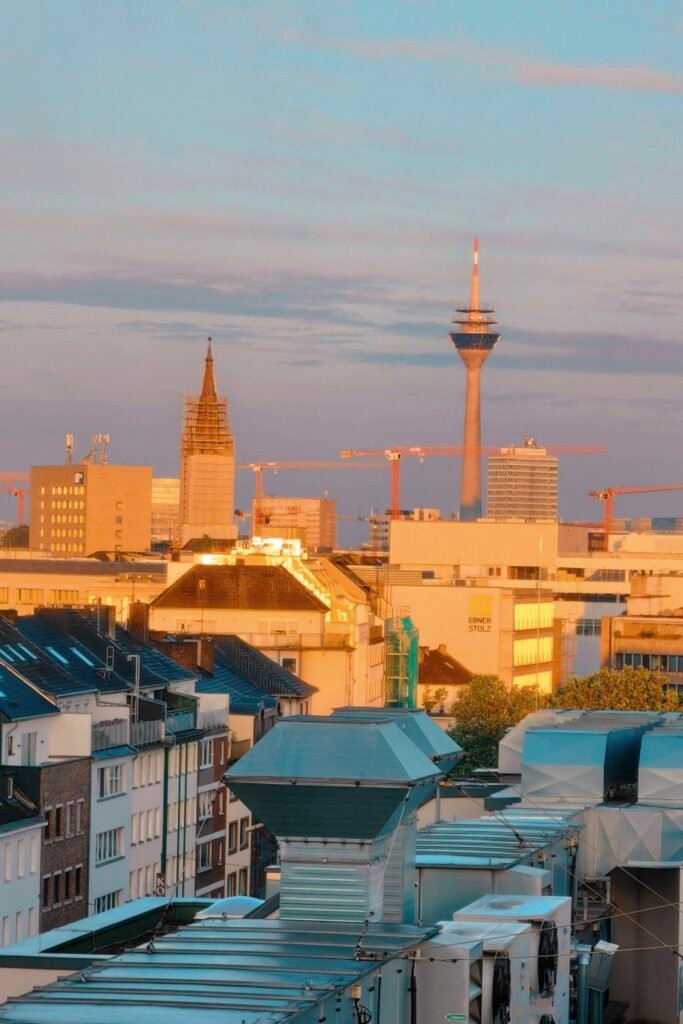
In the early morning, you can gaze out from the hotel and admire the elegant, towering Rhine Tower. As Düsseldorf’s most iconic landmark and its tallest structure, the tower offers panoramic views of the entire city from the top.
Königsallee (King’s Avenue)
Königsallee, often hailed as one of the most elegant shopping streets in the world, has a fascinating history. In the early 19th century, when Napoleon reached the Rhine, he ordered the demolition of Düsseldorf’s city walls to make way for a wide boulevard lined with 120 chestnut trees. In 1848, during Europe’s revolutionary year, locals infamously threw horse manure at King Frederick William IV of Prussia during his visit. Three years later, the street was renamed Königsallee to symbolize the king’s forgiveness and kindness. Today, it stands as Düsseldorf’s most vibrant commercial avenue.
True to its reputation, the clear canal running along the boulevard is framed by trees and graced by swans gliding leisurely through the water. The Triton Fountain, dedicated to Triton—the son of Poseidon from Greek mythology—adds to the charm. In the early morning light, the sun gently filters through the trees, and standing by the water, surrounded by lush greenery, brings a sense of calm and delight. Having this beautiful scene all to myself felt like a rare privilege.
On the western side of the avenue lies the banking district, while the eastern side hosts high-end shops. However, everything was closed. For those planning a luxury shopping spree, it’s essential to come on Saturday morning, as most shopping centers (including supermarkets) close early on Saturdays and remain closed on Sundays and public holidays.
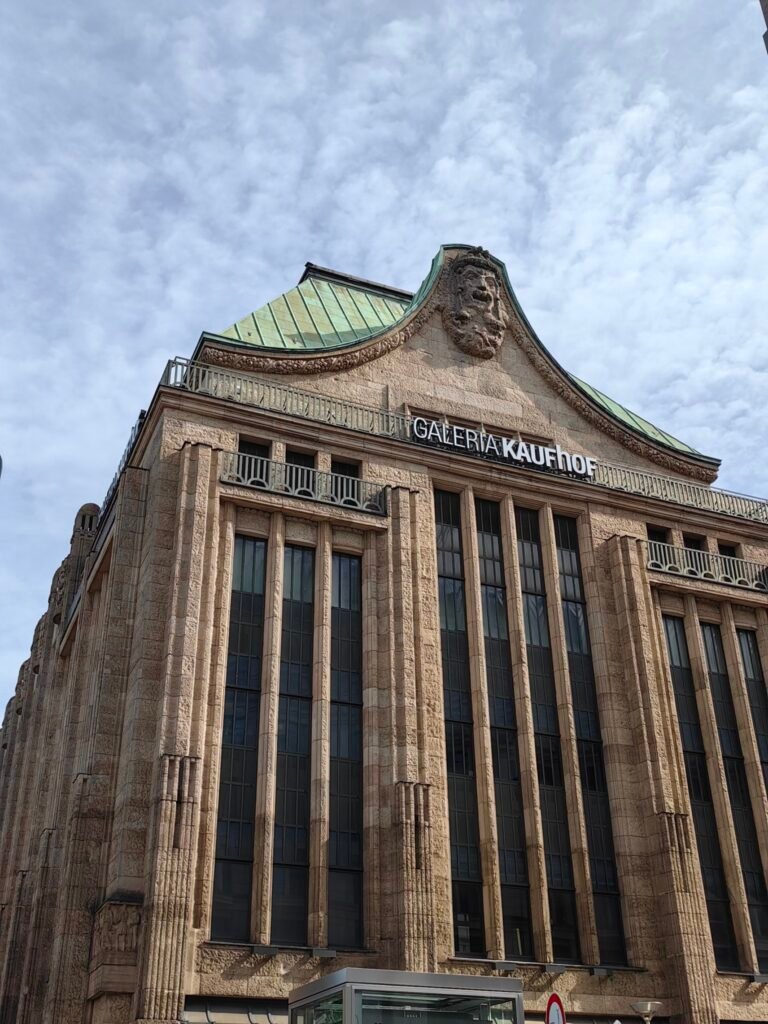
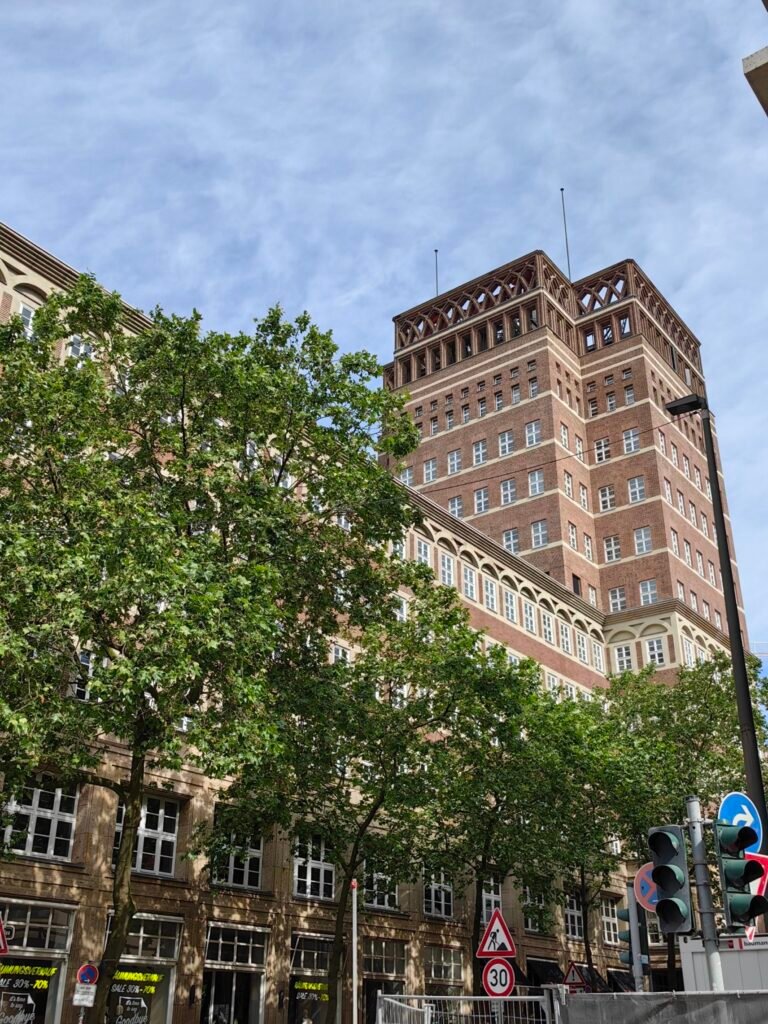
Wilhelm Marx House (Wilhelm-Marx-Haus)
Built between 1922 and 1924, the Wilhelm Marx House was once the tallest reinforced concrete skyscraper in Europe at the time. The building is named after Wilhelm Marx, the mayor of Düsseldorf. It previously served as a stock exchange and now functions as a mixed-use commercial building.
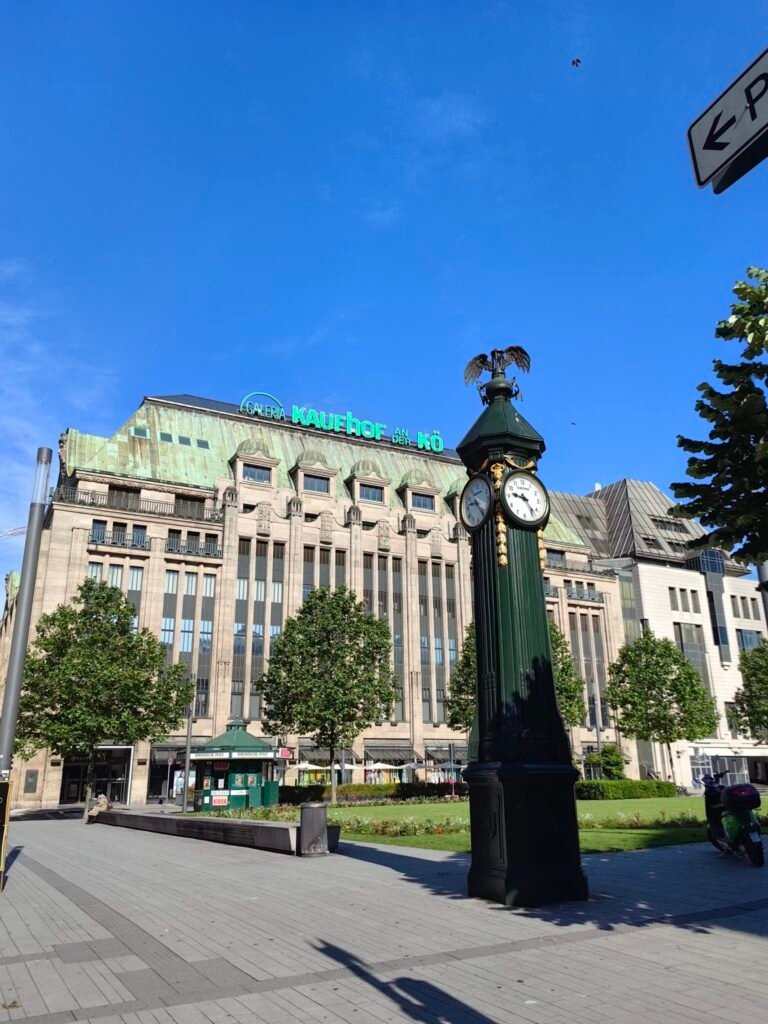
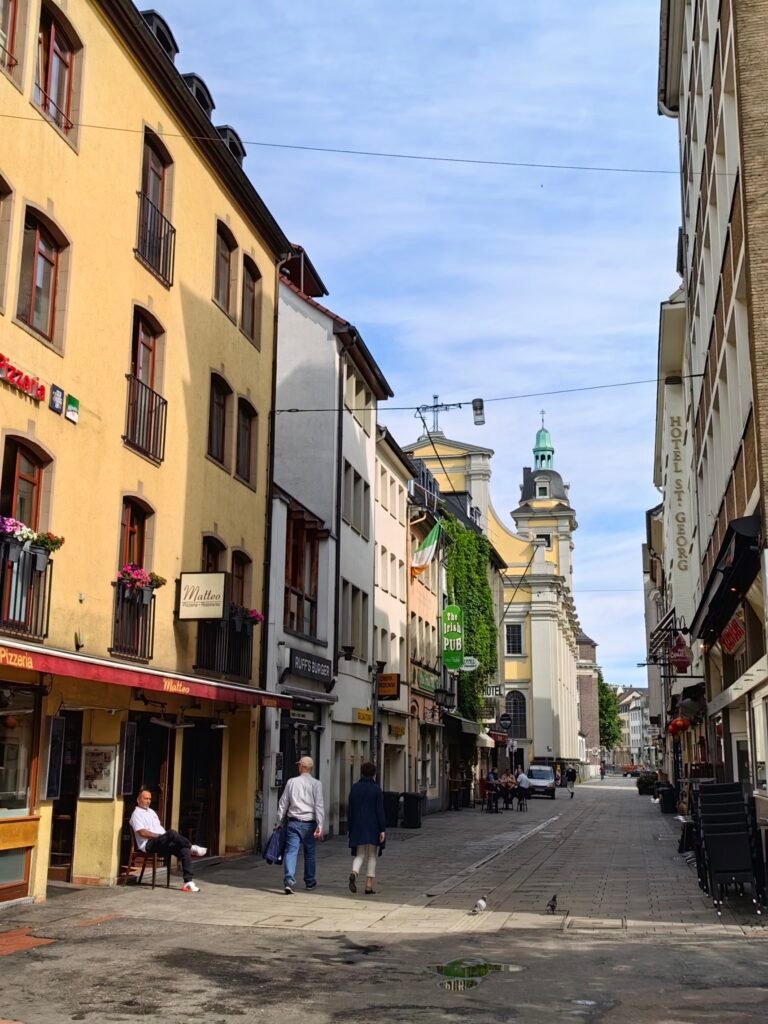
Galeria Kaufhof
Galeria Kaufhof is Germany’s largest department store chain, with its headquarters in Cologne. In front of the store, there’s a cast-iron clock known as “Green Mathilde.” Back in 1905, eight such clocks stood around the city, but only this one remains today.
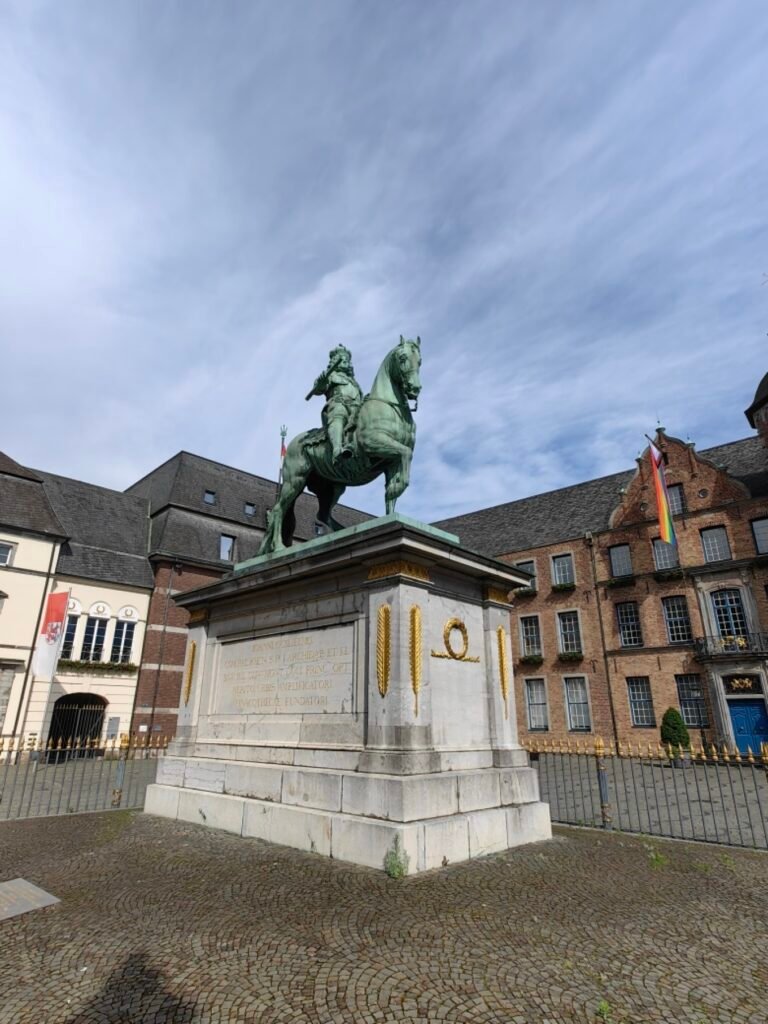
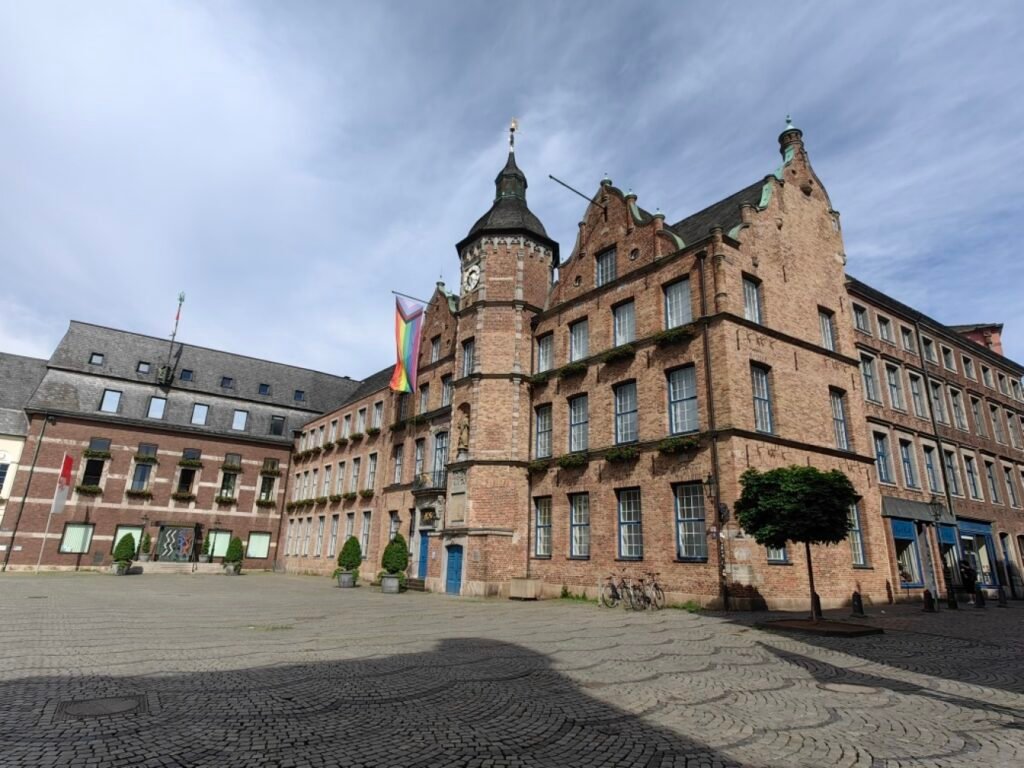
This is the oldest square in the city and also the site of the festive market. Germany celebrates more than a thousand folk festivals of all sizes, meaning people gather to celebrate roughly every three days.
At the center of the square stands an 8-ton bronze statue of Grand Duke Johann Wilhelm, enclosed by railings. Historical records show that the statue was erected in 1711. Johann Wilhelm, the city’s ruler in the 18th century, may not have been tall or handsome, but he had exceptional artistic taste. He married a wealthy wife, and her generous dowry helped him expand Düsseldorf, build an opera house, and establish an art museum. His efforts transformed Düsseldorf into one of Germany’s leading art centers, laying the foundation for the city’s prosperity today.


St. Lambertus Church (St. Lambertus)
St. Lambertus Church is likely the oldest building in the city, with a history dating back to 1159—more than a century before Düsseldorf was officially founded. During the Middle Ages, the church became an important pilgrimage site, as it holds the relics of a Catholic saint who serves as the patron of Düsseldorf.
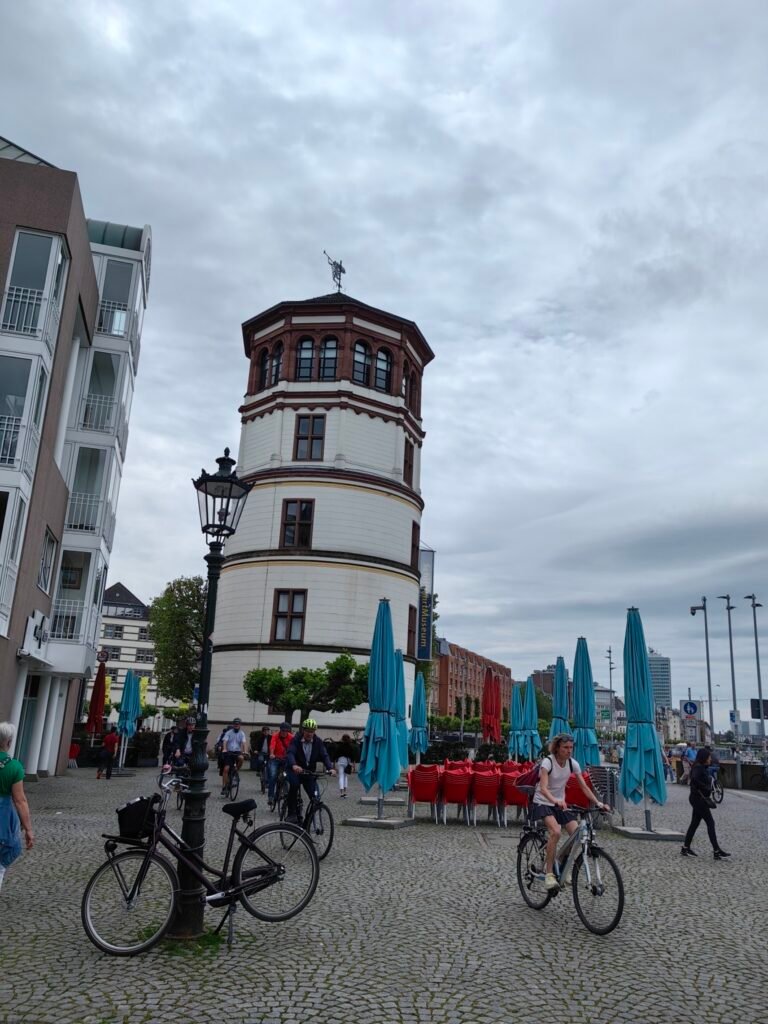
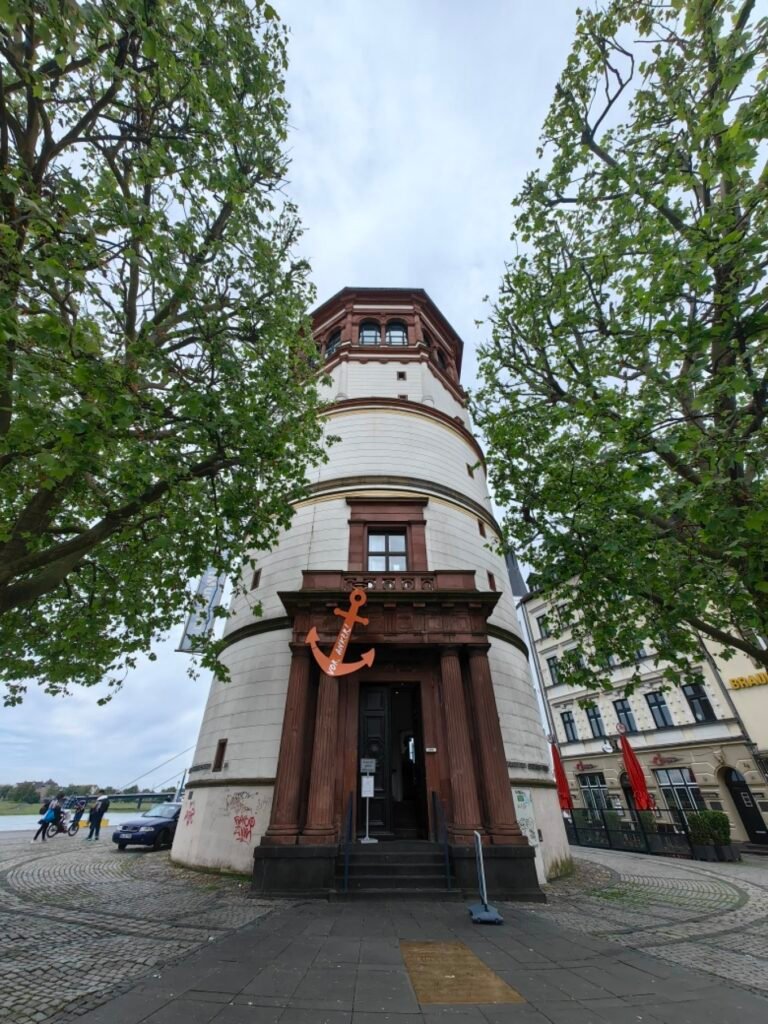
Castle Tower (Schlossturm)
The Castle Tower is one of Düsseldorf’s iconic landmarks, standing with its back to the Old Town and facing the Rhine River. In the 14th century, a ducal castle once stood here, but a fire in the 19th century destroyed most of the structure, leaving only the tower intact. Today, the Castle Tower houses a maritime museum.


The Rhine River
The castle sits right on the banks of the Rhine, where a scenic promenade runs along the river. From the riverside, you can enjoy views of the Rhine Bridge and the Rhine Tower. Boats glide smoothly across the river, and on the opposite bank, the charming German architecture and lush green lawns create a park-like atmosphere, adding to the beauty of the surroundings.

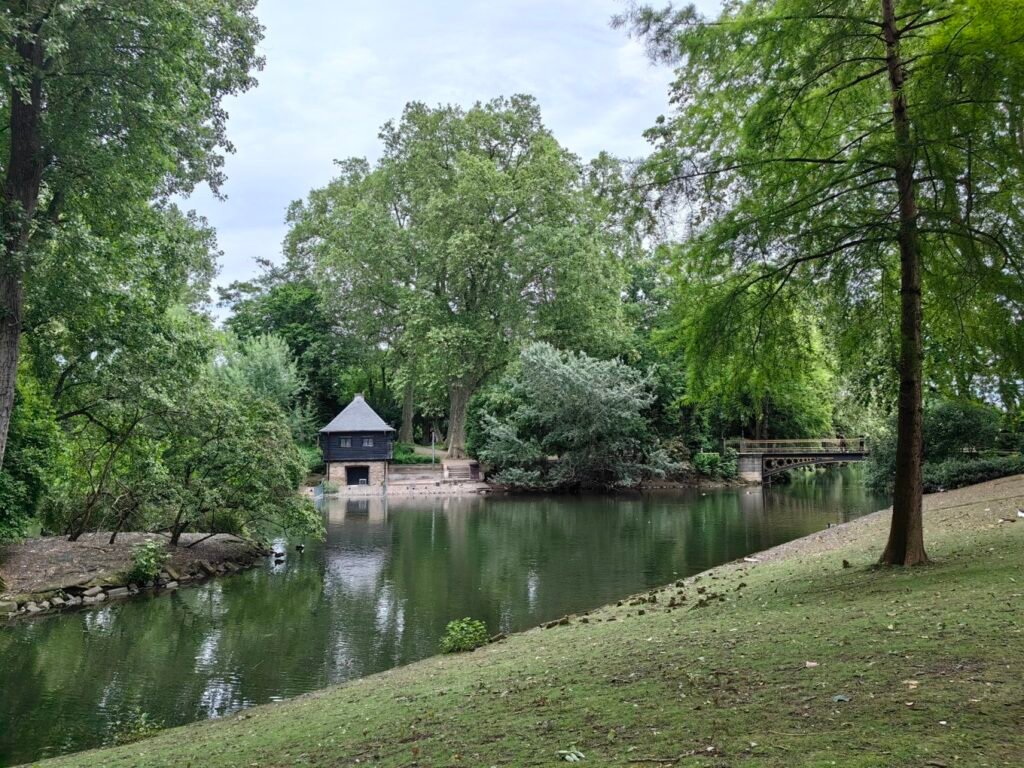
Hofgarten
The Hofgarten, also known as the Court Garden, serves as the backyard of the former palace. It feels like a small urban park, modest in size but home to a beautiful lake. Scattered throughout the garden are bronze and plaster statues, including those of notable figures. Many locals and tourists come here to exercise or relax, enjoying the peaceful and comfortable atmosphere.
Accommodation | Henri Hotel Düsseldorf Downtown
The lobby is small but elegant, with bright windows offering views of the trams passing by. The front desk staff are very polite and can assist with booking taxis. Due to the peak exhibition season, combined with the impact of the UEFA European Championship and the Olympics, room prices have skyrocketed, increasing several times over. It’s recommended to avoid peak periods and book well in advance.
The hotel’s bathroom has an open design without a shower curtain, featuring only a bathtub and no shower stall, which makes getting in and out a bit inconvenient. However, there is a towel warmer, so laundry dries by the next day. The room includes an electric kettle and a hairdryer, but no disposable toiletries or slippers are provided.

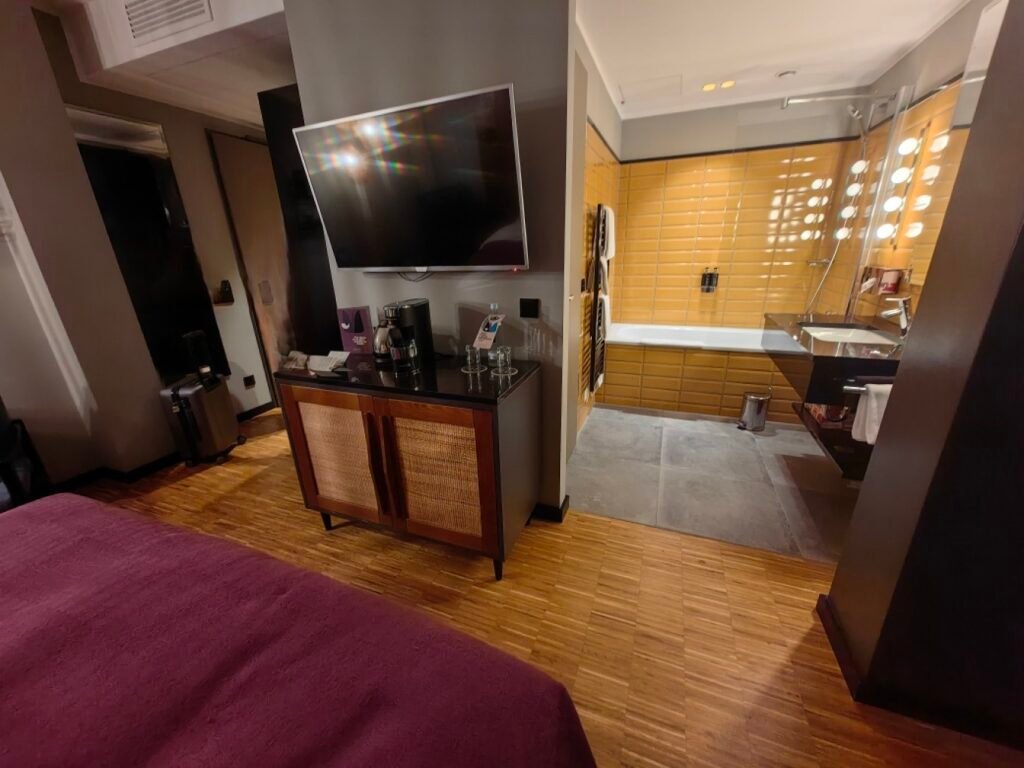
Although I only spent one day and two nights in Düsseldorf, I was able to experience its charm. It’s a city with a beautiful environment—compact in size, but rich in attractions. It boasts historic museums, the quaint Old Town, the scenic banks of the Rhine, and a variety of international cuisines. Düsseldorf is also a shopping paradise. Unfortunately, since it was the weekend, I missed out on exploring the luxury shopping district.
Concerned about encountering homeless people at night, I didn’t get the chance to experience the city’s lively bar scene firsthand. Overall, Düsseldorf left me with the urge and plenty of reasons to return when the opportunity arises.

